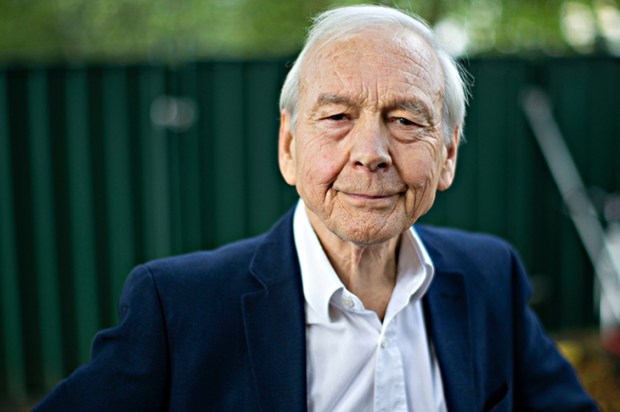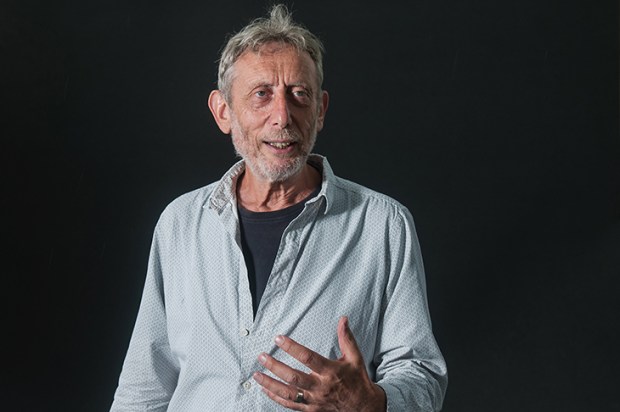If proof were needed that radio will survive the onslaught of the new (or rather now not-so-new) digital technologies, albeit somewhat battered and slimmed down, then series like Radio 4’s Unforgettable (produced by Adam Fowler) should clinch it. Each episode is self-contained, and only 15 minutes long (the perfect length for podcasting). It’s cheap to make, requiring just a single guest, and inspired by a really simple idea — to create a conversation between a guest in the studio and someone they once knew who has died. You could make it at home, except that you probably couldn’t because an advanced editing machine is required, and an incredibly skilled operator. In less than professional hands, there’s every chance it would sound artificial and dangerously clichéd; not a conversation, just a series of disconnected statements.
‘I’m really excited to speak with her,’ says Samantha Roddick, daughter of Anita, the businesswoman and founder of the Body Shop, who died in 2007 aged just 64. ‘I haven’t heard her voice for years.’
Fowler explains that he has in his ‘little box of tricks’ a whole cache of clips of Roddick speaking, all now carefully colour-coded under different categories: gender, enthusiasms, outrage. ‘Does she talk about money?’ asks Samantha, anxious to find out why her mother chose to give away all that she had made. She sounds quite hostile.
‘It’s fun,’ Anita chips in. ‘It’s fun being wealthy because what it allows you to be is generous.’
Samantha laughs, but it sounds hollow.
‘Where do you think your rebellion came from?’ she asks her mother in a neat reversal of roles.
When the conversation finishes, you can almost hear Samantha’s sigh of relief. ‘That was intense,’ she says. But not in a bad way. It was intense for us, too. In only 15 minutes, so much was explored about Roddick’s life, her motivations; the real questions of why we behave and think as we do. It was all manipulated, of course, and yet somehow so direct and meaningful.
Even more exposing, perhaps, and satisfying, was the first programme of the series in which the TV producer Geoff Posner is given the chance to ‘talk’ to Victoria Wood about the making of DinnerLadies. She was such a perfectionist, we discover, as Posner prompts Wood to talk about what drove her to be such a hard taskmaster. None of the actors were ever allowed to improvise, and if they hadn’t learnt their lines properly, they were never used again.
‘I was so anxious to get it right,’ she tells Posner (it was almost impossible to tell that this wasn’t an actual conversation), remembering how she constantly rewrote each episode, and each time ‘it got better’. The show was recorded before an audience over two nights, revising on the second night what hadn’t stirred a laugh on the first. ‘We have to try and make it good for all the people who’ve paid the licence fee,’ said Wood.
Saturday afternoons on 3 have been livened up by the arrival of Inside Music, in which an established professional musician introduces a selection of their favourite pieces but with plenty of time in-between to talk about what’s going on musically. Not just why they like it but how it feels to play it. This week the flautist Gareth Davies, a principal with the London Symphony Orchestra, talked us through Sibelius, Mozart, Björk, Bach and Mark-Anthony Turnage.
There was so much to learn from this programme, insights only available to someone who has played the music, followed the score, experienced its impact from inside. Davies has a special respect for Jessye Norman and especially her performance of Richard Strauss’s ‘Wiegenlied’. ‘Her phrasing is, as a flute player, something I aspire to,’ says Davies, who recommends the piece to his students. The breath control. ‘There’s no bumps, even with the consonants of the German language.’
Mahler’s second symphony has always had a special place in his repertoire because it was the first piece he played with the LSO, asked to step in at the last minute when the principal flute broke his ankle. He had never even listened to the work before and had to sight read his part during the concert. ‘The flute part is not that tricky,’ he said, as if the experience had not been at all nerve-racking. He didn’t even know to expect the entry of the choir and soloists after a full hour of symphony. It was so thrilling, he recalled, to suddenly hear this, and be in the midst of it. ‘An overwhelming, life-affirming piece of music.’
But perhaps the most vivid image of the week on radio was given us by David Cannadine in his short study of Wellington for Radio 4, another 15-minute special. In Prime Ministers’ Props (produced by Melissa FitzGerald), we discovered that at Wellington’s state funeral in the autumn of 1852 the huge crowds who turned out to watch the procession go by on its way up to St Paul’s Cathedral saw a riderless horse clip-clopping behind all the carriages. In each stirrup was a fine hand-made boot, the wrong way round.
Got something to add? Join the discussion and comment below.
Get 10 issues for just $10
Subscribe to The Spectator Australia today for the next 10 magazine issues, plus full online access, for just $10.
You might disagree with half of it, but you’ll enjoy reading all of it. Try your first month for free, then just $2 a week for the remainder of your first year.














Comments
Don't miss out
Join the conversation with other Spectator Australia readers. Subscribe to leave a comment.
SUBSCRIBEAlready a subscriber? Log in